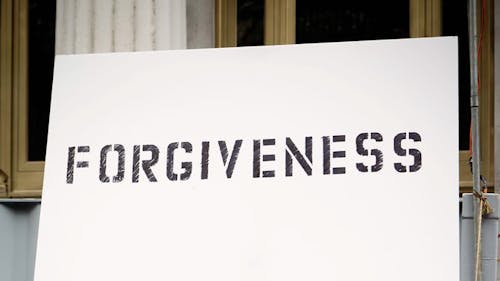Finding strength to forgive is challenging, but worth it

After explaining a complicated romantic situation to a close friend that I had chosen to brush off, I was warned that my kindness was being taken for weakness.
“You’re too forgiving sometimes,” she said, worried that I was being taken for a fool. I probably should have been ashamed by her critique, but instead I took it as a compliment, even though I know she didn’t mean it to be so.
In fact, my ability to forgive is one of my favorite qualities about myself, as I don’t think many people truly know what it means or feels like to forgive someone. But it’s simply a virtue not everyone naturally has. There’s no simple answer on how to forgive — it varies from person to person, and many people suffer major trust issues after being hurt. Finding the power to forgive also depends on the severity of the offense, and how important that person is in your life. Forgiveness might seem like a vulnerability, but when understood fully, it’s actually a sign of strength.
The Issue with “Forgive But Don’t Forget”
In a perfect world this mentality works, but in reality, it can be problematic. It’s normal and just to feel protective over your heart after someone’s done you wrong. But if the person you’ve hurt in the past says they’re over it, even though they keep bringing up your mistake and holding it against you in times of conflict, they haven’t truly forgiven you. Making the choice to keep you in their lives while using a grudge as a means to mistreat you isn’t only preventing themselves from truly moving on, but it's emotionally abusive to you, too.
It Takes More Energy to Hate
When you truly forgive someone, you’ll feel a sort of weight lifted off of your shoulders. That’s because resenting someone takes more energy out of you than accepting them for who they are — negative energy, at that. And what’s the point of stressing over someone who isn’t exactly stressed over you? You don’t necessarily have to remain friends with someone after they’ve offended you in order to forgive them, either. Accepting their human mistake and having respect for them while still keeping your distance is the true example of forgiving but not forgetting.
Dealing with Deceit
It’s true that oftentimes, people are only sorry once they’ve gotten caught. But does this always mean that their apology isn’t sincere? Sometimes it takes the truth coming to light for someone to wake up and realize what they’re about to lose. While you can’t force someone to be honest, you can try to see the human in them, and understand their reasons for going behind your back. There isn’t necessarily an excuse for deceit, but hearing out their side of the story might help you forgive. Depending on how you decide to move forward with the relationship, only keep in touch if you truly understand and accept why they did something that hurt you. Otherwise, learn from the situation and move on cordially.
Life is Too Short
It’s cliche, but it’s true. The same friend who criticized me for being too easy-going recently admitted she wishes she could be more forgiving at times. After her ex-boyfriend died suddenly, his unexpected death forced her to put things into perspective.
“This made me wish I didn’t hold grudges,” she said, referring to his death and regretting all the hard feelings she harbored after their split. You never know when you’re going to lose someone, so before you decide to cut ties, take time to re-evaluate how serious their mistake really was. When you forgive and leave off on good terms, you won’t have any regrets or “what if” feelings later on in life.
Most importantly, forgiveness shouldn’t be forced. Rushing the healing process to keep the peace doesn’t lead to a proper forgiveness — it just slaps a Band-Aid over the issue. Only grant verbal forgiveness when it feels right.



